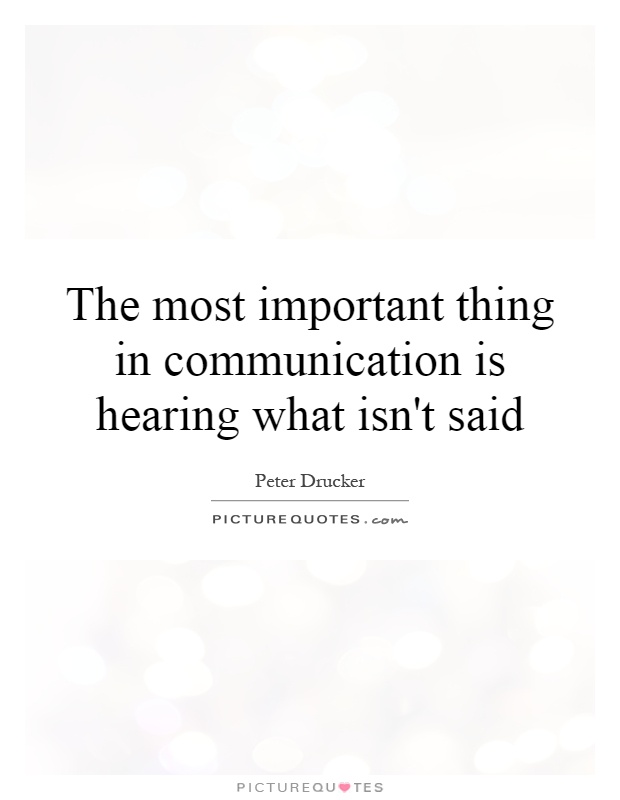The most important thing in communication is hearing what isn't said

Communication QuotesListening QuotesThe Most Important QuotesMost Important QuotesImportant Thing QuotesPeter Drucker Quotes
The most important thing in communication is hearing what isn't said
Peter Drucker, often referred to as the father of modern management, was a renowned management consultant, educator, and author. He emphasized the importance of effective communication in organizations and believed that the most important aspect of communication is not just hearing what is said, but also understanding what is left unsaid.Drucker believed that communication is a two-way process that involves both speaking and listening. While verbal communication is important, he argued that nonverbal cues, body language, and context play a crucial role in understanding the true message being conveyed. In his book "The Effective Executive," Drucker wrote, "The most important thing in communication is hearing what isn't said."
Drucker's emphasis on listening to what is left unsaid highlights the importance of active listening in effective communication. Active listening involves not only hearing the words being spoken but also paying attention to the tone of voice, facial expressions, and body language of the speaker. By being attuned to these nonverbal cues, one can gain a deeper understanding of the underlying emotions, intentions, and motivations behind the words being spoken.
In the context of organizational communication, Drucker believed that leaders must be skilled listeners in order to effectively communicate with their teams. By listening to what is left unsaid, leaders can uncover hidden concerns, fears, and aspirations that may not be explicitly expressed. This allows them to address underlying issues, build trust, and foster a culture of open communication within the organization.
Drucker also believed that effective communication is essential for collaboration and teamwork. By listening to what is not said, team members can better understand each other's perspectives, anticipate needs, and work together towards common goals. This level of understanding and empathy is crucial for building strong relationships and achieving success as a team.












 Friendship Quotes
Friendship Quotes Love Quotes
Love Quotes Life Quotes
Life Quotes Funny Quotes
Funny Quotes Motivational Quotes
Motivational Quotes Inspirational Quotes
Inspirational Quotes